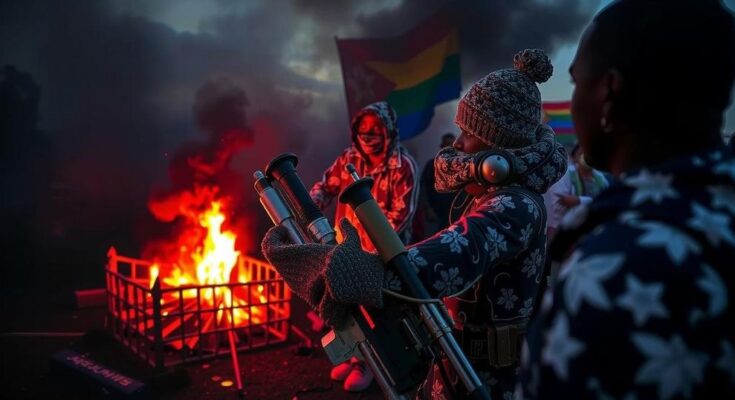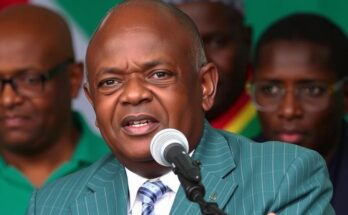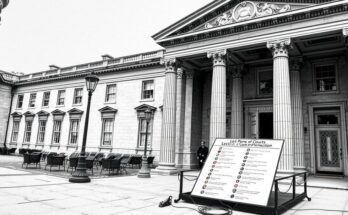Mozambique is facing significant post-election violence following disputed election results that allowed the ruling Frelimo party to maintain its long-standing power. This unrest has raised serious concerns for the Southern African region, affecting regional trade, political stability, and humanitarian issues, as demonstrators protest the legitimacy of the electoral process amidst reported violence and border closures.
Mozambique has been engulfed in protests following the disputed results of the October 9 elections, which saw the ruling Frelimo party retain power after nearly five decades. The unrest has claimed the lives of at least 30 individuals and has raised concerns that will likely be addressed at the upcoming Southern African Development Community summit. The independent candidate Venancio Mondlane, who only managed to secure 20% of the vote, is contesting these results and is advocating for nationwide demonstrations against the electoral processes. The implications of post-election violence in Mozambique extend beyond its borders, as the region is home to several stable democracies, including South Africa and Botswana, that have successfully conducted free and fair elections recently. Notably, Botswana saw a change of power after 58 years, while South Africa experienced a shift in parliamentary majority. However, Mozambique is now the latest country to face challenges regarding electoral legitimacy, following allegations of irregularities raised by the European Union’s observation teams after the elections. The closure of borders, particularly the Lebombo border with South Africa, due to the violence has further complicated regional trade and economic stability. South Africa’s economy is heavily reliant on exports that utilize Maputo’s harbor, and the border closures reportedly cost approximately R10 million (USD 555,177) daily. Given Mozambique’s rich mineral resources and potential gas discoveries, the instability threatens to disrupt economic recovery and collaborative ventures within the Southern African region. Historically, Mozambique’s troubled past, including a protracted civil war and ongoing conflicts in the northern provinces, has left deep scars on its socio-political landscape. The presence of approximately 600,000 internally displaced persons adds to the complexity, as many seek better opportunities abroad. Hence, any ongoing conflict or instability presents a real risk of a deteriorating humanitarian crisis amid rising cross-border migrations.
The post-election violence in Mozambique arises from tensions surrounding the results of the October 9 elections, where the long-dominant Frelimo party was declared the winner despite widespread allegations of election rigging. The unrest in Mozambique has broad implications for the stability and economic wellbeing of the Southern African region, especially given Mozambique’s geographical connections and economic ties with neighboring countries.
The situation in Mozambique highlights the continuing challenges of ensuring electoral democracy and stability within Southern Africa. With rising tensions and significant economic implications due to trade disruptions, it is imperative for regional leaders to engage in dialogue and find lasting solutions for a peaceful and democratic future. Further unrest could lead to humanitarian crises and exacerbate regional instability, necessitating urgent attention from regional bodies.
Original Source: apnews.com




